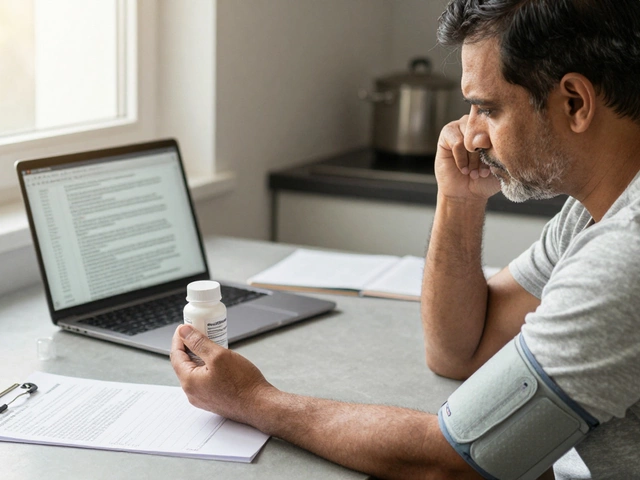Having a baby is a life-changing event, and if you're already dreaming about adding another member to your family, you might be wondering how soon you can start IVF after childbirth. This is a big question and not one with a one-size-fits-all answer.
Your body needs time to heal, that's a given. After giving birth, whether vaginally or through a C-section, your body undergoes a lot of changes. It's essential to respect this recovery period before jumping into IVF treatment. Typically, experts suggest waiting at least six months to a year, but things might vary based on individual circumstances.
The idea here isn't just about physical readiness. It's also about emotional and psychological preparedness, as IVF can be an intense process. A solid support system—partner, family, friends—is crucial during this journey. But, if expanding your family quickly is what you aim for, ensure you're having open chats with your fertility specialist. They can offer tailored advice based on your health and circumstances.
If you're keen to learn more about timing and preparations, stay tuned as we delve deeper into what needs to be considered before you jump back on the IVF train.
- Understanding Postpartum Recovery
- Why Timing Matters
- Health Considerations
- Emotional Readiness
- Expert Insights
- Practical Tips for Planning
Understanding Postpartum Recovery
When it comes to postpartum recovery, it's crucial to grasp what your body is going through. After delivering a baby, whether it's your first or fifth, your body needs some serious downtime to heal and regain strength.
Physically, there's a lot happening. Your uterus is shrinking back to its pre-pregnancy size, a process known as involution. This can take about six weeks, but the full scope of physical recovery may last longer, especially if childbirth involved complications like tearing or if you had a C-section.
Hormonal Changes
After pregnancy, hormone levels fluctuate as your body settles back into a new normal. This can affect everything from mood swings to hair loss. It's all part of the process, but these hormonal changes can also impact when it's safe and feasible to begin IVF treatment.
| Aspect | Typical Recovery Time |
|---|---|
| Physical Recovery | 6 weeks - 6 months |
| Emotional Recovery | Varies widely |
| Hormonal Reset | Several months |
Emotionally, postpartum recovery is just as significant. It can be a rollercoaster—some rides smoother, others quite turbulent. Baby blues are common, but if mood changes persist, discussing it with healthcare providers is crucial.
Nutrition and Rest
Your body's repair work needs fuel—so good nutrition is key. Think balanced diet, full of proteins, carbs, and healthy fats. And yes, it's hard, but whenever possible, prioritizing rest can make a big difference.
Before jumping back into your fertility journey, your body deserves the time to bounce back fully. Listen to what it needs, and ensure you're fully ready before embarking on the next big step.
Why Timing Matters
Deciding when to try IVF after childbirth is a crucial step. It's not only about logistics but ensuring both your health and baby's wellbeing. Rushing into it can sometimes lead to complications, making timing everything.
Physical Recovery
Your body has just gone through the rollercoaster of pregnancy and delivery, which takes a significant toll. Health professionals often recommend waiting at least six months to a year to restore physical health. This time helps your uterine lining recover, which is essential for a successful pregnancy.
Emotional Readiness
IVF can be an emotional journey. After the mental and emotional challenges of childbirth, you need time to catch a deep breath. It's important to pause and ensure you’re emotionally ready to dive back into the ups and downs that come with IVF treatment.
Feeding Considerations
If you're breastfeeding, you might wonder if it affects IVF. While breastfeeding, hormones are fluctuating, and these hormonal shifts can influence fertility treatments. Some experts suggest that it might be best to wean your baby before initiating IVF.
Health Risks
Pushing IVF too soon can amplify risks like uterine rupture, especially if you're recovering from a C-section. Plus, having consecutive pregnancies without proper recovery time could lead to increased pregnancy-related complications like gestational diabetes or preeclampsia.
| Recovery Aspect | Minimum Waiting Period |
|---|---|
| Body's physical recovery | 6 to 12 months |
| Emotional readiness | Varies |
| Ending breastfeeding | As advised by doctor |
The bottom line? Be sure you give yourself the gift of time to heal and gather strength before embarking on the IVF journey. Talk to your fertility doctor to help determine the best timeframe tailored to your situation.
Health Considerations
Before jumping back into IVF treatment after having a baby, it's crucial to take a hard look at your health. There's a reason experts recommend waiting a bit before starting fertility treatments again—it's all about giving your body the time it needs to recuperate.
Physical Recovery
Typically, after giving birth, your body needs time to recover for about six months to a year. This recovery time is vital, especially if you've had a C-section, where healing could take longer. Burdening your body with another pregnancy too soon can increase the risks of complications.
Nutritional Needs
Your nutritional status is another factor to consider. During pregnancy, your body used a lot of resources. Before attempting another pregnancy through IVF, replenishing vital nutrients such as iron, calcium, and folic acid is essential.
Breastfeeding Implications
If you're breastfeeding, it's worth noting that some IVF medications might interfere with milk production or pass onto the child through breast milk. Discuss this with your doctor to weigh the pros and cons.
General Health Checks
A visit to your healthcare provider is a must. Checking for conditions like anemia, hypertension, or thyroid issues is important before starting another pregnancy journey. These checks can ensure that you're in the best health possible.
Statistical Insight
Looking at some numbers can help make informed decisions. Consider this table showcasing common recovery timelines:
| Condition | Recommended Recovery Time |
|---|---|
| Vaginal Delivery | 6-12 months |
| C-Section | 12-18 months |
| Iron Deficiency | Varies (depends on treatment) |
Keep these health considerations in mind as you plan your next steps, ensuring not just the safety of your new pregnancy, but also your own well-being.

Emotional Readiness
Diving into the world of IVF treatment after having a baby isn't just about getting your body on board; it’s also about checking in with your emotions. It's crucial to make sure you're really prepared for the emotional rollercoaster that IVF can sometimes be.
After having a baby, life changes significantly, and so do our emotional landscapes. While many folks feel joy that knows no bounds, others might battle baby blues or postpartum depression. Before jumping back into the IVF journey, it’s important to get your mental well-being squared away. Having candid conversations with loved ones can make a huge difference.
Supporting Mental Health
Consider chatting with a therapist or counselor who specializes in postpartum care or fertility issues. They can offer coping strategies, especially if you're anxious about diving back into the fertility process so soon. Remember, every feeling you're having is valid, and talking it out can be a game-changer.
According to a 2023 study by the Fertility Awareness Institute, about 60% of parents underestimated the emotional preparation needed for a second child using IVF treatment. Being mentally and emotionally equipped can lead to a more fulfilling and less stressful process.
Building a Support System
Your support network is key. Ensure there's a solid mix of practical help and emotional backing. Whether it’s your partner, family, or friends, having people you trust close by can ease the journey. Discuss your concerns and be open about what you might need in terms of assistance.
Life with a new baby can already feel like a juggling act. Adding IVF to the mix can be another ball in the air, so acknowledging and planning for the emotional load is essential.
- Reach out to local or online support groups for parents going through IVF treatment.
- Plan family schedules to accommodate IVF appointments without stressing out.
In the end, your readiness is a personal journey. Balancing your desire to grow your family with your current emotional state will guide your next decision. Just remember to be kind to yourself, and take it one step at a time.
Expert Insights
When it comes to starting IVF treatment right after having a baby, expert opinions play a crucial role in guiding new parents. Fertility specialists often recommend waiting for a while before considering another pregnancy. Let's break down some expert insights.
The Importance of Healing Time
Doctors generally advise waiting about six months to a year before starting any fertility treatments like IVF. The main reason is to give your body a chance to fully recover from the previous pregnancy and childbirth. Skipping this essential recovery time can lead to increased risks both for the parent and the prospective pregnancy.
Prioritizing Physical and Mental Health
Another key point specialists make is that both physical and mental health need to be in a good place before beginning IVF treatment. The added stress of a new baby along with the rigorous demands of IVF could be overwhelming for many. Experts suggest talking to a mental health professional if you're feeling anxious or unsure about proceeding.
Understanding Fertility Checkups
Some experts recommend scheduling a fertility checkup as part of postpartum recovery. This checkup can help assess how your body is doing post-baby and what your fertility looks like going forward. During this time, doctors can evaluate hormonal levels, discuss any changes in your menstrual cycle, and provide personalized advice on how to proceed with IVF.
Statistical Insights
According to a study mentioned by fertility clinics, approximately 20% to 30% of couples who wish to conceive shortly after childbirth consider IVF treatment within the first year. However, a tailored plan based on individual health metrics is always recommended. Here's a quick table that shows the general timeline advised by experts:
| Time from Childbirth | Recommended Action |
|---|---|
| 0-6 months | Focus on recovery and consultation |
| 6-12 months | Consider fertility checkup and start planning |
| 12+ months | Okay to consult about beginning IVF, based on health |
So, the takeaway here? Listen to your body and don't rush it. Consulting with experts can provide personalized advice and peace of mind as you consider expanding your family again after having a baby.
Practical Tips for Planning
Jumping into IVF treatment after having a baby can be daunting, so here are some tangible tips to make the transition smoother.
Talk to Your Doctor
This is the number one priority. Before making any big decisions, have a candid conversation with your healthcare provider. They'll help determine if your body has healed adequately from childbirth and is ready for another pregnancy.
Organize Your Schedule
IVF involves multiple appointments and can be time-consuming. It’s wise to map out your schedule to accommodate the entire process, from consultations to procedures. Having a planner or utilizing mobile apps can help keep track of appointments efficiently.
Prepare Financially
Let’s be honest: IVF isn’t cheap. Make sure you’re financially ready for the investment. Consider your insurance options, savings, and budget planning. A little financial foresight around IVF can alleviate some stress later on.
Emotional Check-In
Check in with yourself and your partner emotionally. Are you ready to handle the emotional rollercoaster that IVF can sometimes be? Mental preparedness is just as crucial as the physical aspects. Counselling or support groups can offer immense help during this time.
Fertility Friendliness
Try keeping your lifestyle as fertility-friendly as possible. This means eating a balanced diet, getting regular exercise, and avoiding stress as much as feasible. Little things like staying hydrated and ensuring enough sleep can make a big difference.
Consider Fertility Supplements
Some folks find it beneficial to take specific fertility supplements. Although it's best to consult with a healthcare provider about what might be right for you, supplements like folic acid are often recommended during family planning stages.
| Month | Activity |
|---|---|
| 0-3 | Postpartum recovery |
| 4-6 | Consultation with a fertility specialist |
| 7-12 | Begin lifestyle changes and budgeting |
Planning for IVF after having a baby requires more than just logistics. It's about ensuring you’re physically, emotionally, and financially ready. These steps could make this journey just a little easier and more structured.





